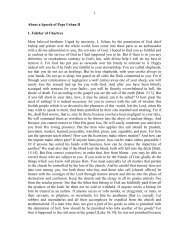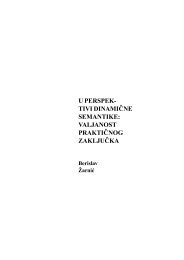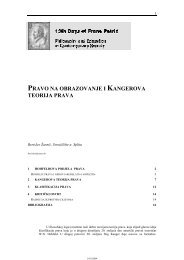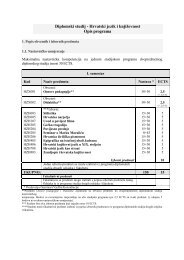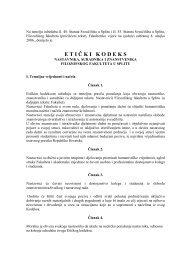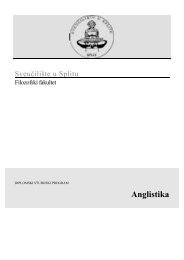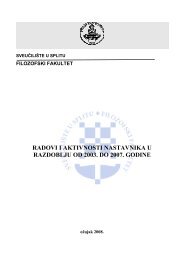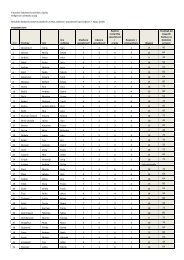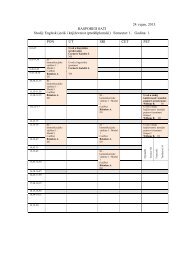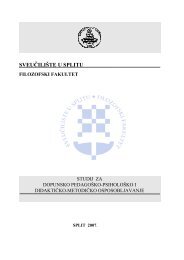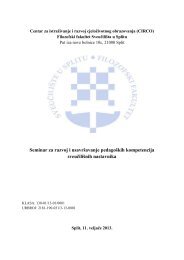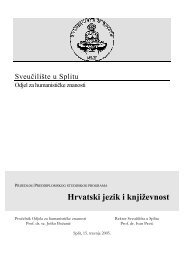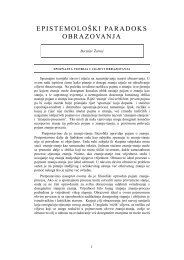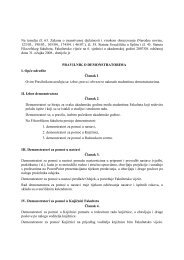English Studies
English Studies
English Studies
You also want an ePaper? Increase the reach of your titles
YUMPU automatically turns print PDFs into web optimized ePapers that Google loves.
G R A D U A T E D E G R E E P R O G R A M M E : E N G L I S H S T U D I E S<br />
Assessment<br />
methods<br />
Language of<br />
instruction<br />
Quality<br />
assurance<br />
methods<br />
Semester 2<br />
language standards is strongly encouraged. Various problem-solving<br />
activities and work on various texts.<br />
The quality of the students’ participation in class discussions and homework<br />
tasks will be evaluated throughout the course.<br />
Written examination at the end of the course.<br />
Croatian language.<br />
Student feedback via anonymous questionnaires and surveys, advisory<br />
sessions with students, cooperation and exchange of experience within the<br />
Croatian <strong>Studies</strong> Department, as well as with other departments.<br />
Course title Languages in Contact<br />
Course code<br />
Type of course<br />
Level of course<br />
HZE704<br />
Lecture + Seminar / Advisory hours<br />
Elective Course<br />
Intermediate level course<br />
Year of study First Semester Two<br />
ECTS<br />
(Number of<br />
credits allocated)<br />
Name of lecturer<br />
Learning<br />
outcomes and<br />
competences<br />
Prerequisites<br />
Course contents<br />
3 ECTS credits<br />
Contact hours (15 lectures + 15 seminars) = 1 credit.<br />
Student study time (60 hours) = 2 credits.<br />
Prof. dr. Zjena Čulić,<br />
Mr. sc. Ivo Fabijanić, assistent<br />
Upon completion of the course, the student is expected to acquire<br />
knowledge necessary to understand and analyse the process of linguistic<br />
borrowing. S/he should gain the ability to formulate linguistic problems and<br />
develop practical solutions. The student will be competent to undertake<br />
research and professional work in the field of language-contact studies. S/he<br />
will be able to explore some of the topics focusing on linguistic as well as<br />
sociolinguistic results of languages in contact.<br />
Completed undergraduate study programme.<br />
History of Research on Language Contact.<br />
Types of Contact Situation: Language Maintenance, Language Shift,<br />
Language Creation.<br />
Contact Situations and their Outcomes.<br />
Social Contexts of Language Contact.<br />
Bilingualism: Bilingual Society, Bilingual Individual.<br />
Language Maintenance and Lexical Borrowing: Social Motivation for<br />
26



